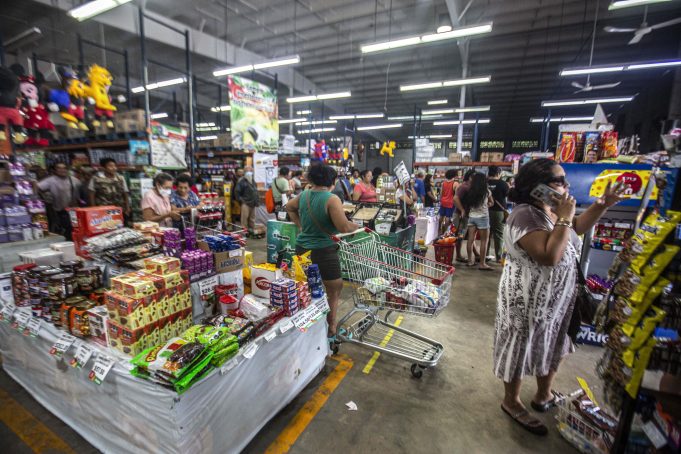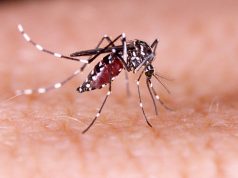MEXICO – Hurricane Milton exploded in strength Monday to become a potentially catastrophic Category 5 storm bound for Florida, threatening the US state with a second ferocious hurricane in as many weeks.
Milton, which is forecast to batter Mexico’s Yucatan peninsula as it churns eastward, rapidly intensified to the highest category on a scale of five, triggering evacuation orders and warnings of savage conditions on Florida’s west coast.
The National Hurricane Center (NHC) said the storm’s maximum sustained winds were near 180 miles (285 kilometers) per hour, and that air pressure at the center of the storm was at a “near record low.”
Communities hit by Hurricane Helene, which slammed Florida late last month, raced to remove debris that could become dangerous projectiles as Milton barrels in.
“Last time, people’s cars were underwater… but the bigger issue this time is going to be the wind,” said David Levitsky, a retired homeowner on Treasure Island, in Pinellas County.
Residents on the low-lying island have been piling up debris from Helene’s flooding in their front yards for removal.
“All this stuff is just wind fodder that’s going to just be blowing down the street and hitting who knows what,” the 69-year-old told AFP.
Amid the wreckage, DeSantis, a conservative known to clash with the federal government, found himself under fire after broadcaster NBC reported he was ignoring phone calls from Harris on the Helene recovery.
DeSantis did speak to President Joe Biden about the preparations, the White House said late Monday.
As Milton barreled toward Florida, state authorities have issued mandatory evacuations orders for areas including some parts of Tampa, a metropolitan area of more than three million people that could take a direct hit.
“If the storm stays on the current track, it will be the worst storm to impact the Tampa area in over 100 years,” the National Weather Service said.
A major storm surge for Florida’s west coast is forecast for Tuesday night or early Wednesday, and Tampa could suffer an influx of water between eight and 12 feet (2.4 to 3.6 meters) above ground level.
Rainfall of 10 inches (25 centimeters), with localized spots of up to 15 inches, are expected to cause severe flash flooding.
In the central city of Orlando, under gray skies, hundreds of cars lined up to collect sandbags.
“We might evacuate, me and my pets, we might go to Georgia,” Tony Carlson, 32, told AFP. “People think it’s going to be pretty bad.”
Maria Torres, 29, said her family was not planning to leave, but had prepared with a generator, food and water.
In Mexico’s Yucatan, workers boarded up glass doors and windows, fishermen hauled boats ashore and schools were suspended.
In the southeastern United States, emergency workers are still struggling to provide relief in the aftermath of Helene, which killed at least 230 people across several states.
Helene hit the Florida coastline on September 26 as a Category 4 hurricane, dumping rain and causing massive flooding in remote inland towns in states further north, including North Carolina and Tennessee.
Deanne Criswell, head of the Federal Emergency Management Agency (FEMA), also dismissed the claims about money being diverted to migrants as false and slammed the misinformation as “dangerous.”
She warned Monday that “these storms are bringing more water than they ever have and so while we have the wind risk, the water is what’s killing people.”
Researchers say climate change likely plays a role in the rapid intensification of hurricanes, because there is more energy in warmer oceans for them to feed on.
Helene was the deadliest natural disaster to hit the US mainland since 2005’s Hurricane Katrina, with the death toll still rising. – AFP

















